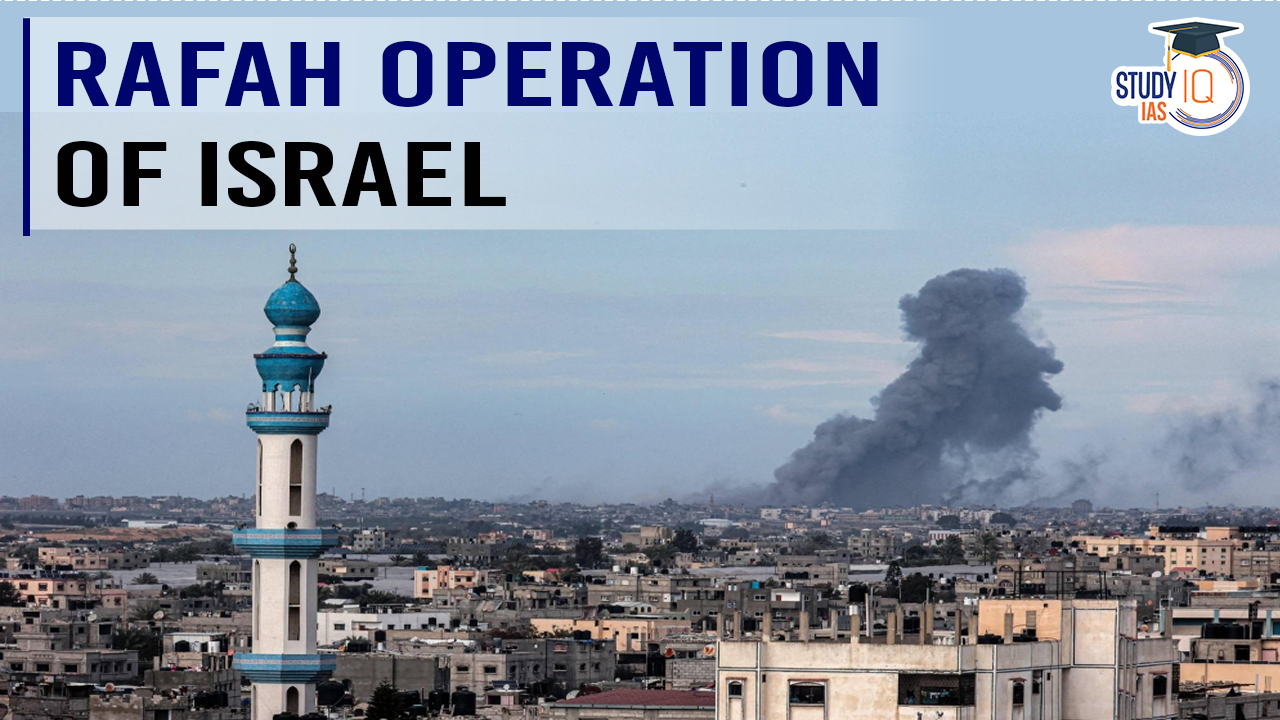Table of Contents
The ongoing conflict between Israel and Hamas in Gaza has reached a critical juncture, with significant military operations taking place in Rafah, a city in southern Gaza. Recent developments have seen Israeli forces advancing into the city, raising concerns about the humanitarian impact on the civilian population. Despite these advancements, the United States maintains that Israel has not crossed the “red lines” set by President Joe Biden, which would trigger a halt in weapons supplies. Millions of people across the world Share ‘All Eyes On Rafah’ on different social media platforms like Instagram, Facebook etc.
What is ‘All Eyes on Rafah’?
“All Eyes on Rafah” refers to the heightened global attention and concern regarding Israel’s military operations in Rafah, a city in the southern Gaza Strip. This phrase encapsulates the focus on the humanitarian impact of these operations and the widespread international response.
Israel’s Reply to ‘All Eyes on Rafah’
The “All Eyes on Rafah” campaign condemns Israeli attacks in Gaza, highlighting the severe humanitarian crisis there. In response, Israel launched the “Where were your eyes on October 7?” campaign, referencing the Hamas-led attacks on October 7 that killed 1,200 Israelis. This exchange underscores the deepening conflict, with Israel’s recent strikes in Rafah killing at least 21 people, including 12 women. The violence has resulted in over 36,000 Palestinian deaths and millions of refugees, marking a significant escalation in the ongoing war.
Get complete details of the Israel-Hamas War here which began on 7 October 2023 mainly in the Gaza Strip.
Rafah Operation of Israel
Israel’s operation in Rafah targets Hamas infrastructure and combatants, involving gradual advances into the city’s eastern and central areas. Despite intense bombardments, the US does not view it as a full-scale invasion, maintaining military support. However, the conflict has caused significant civilian casualties and displacement, drawing international condemnation. The Biden administration faces pressure to enforce stricter conditions on aid, emphasizing the need to minimize humanitarian impact and ensure accountability.
| About Rafah Operation of Israel | |
| Location and Timing | The operation is taking place in Rafah, a city in the southern Gaza Strip. The Israel Defense Forces (IDF) began their targeted ground operations in Rafah on May 6, 2024. |
| Goals | Israel aims to defeat Hamas fighters and dismantle their infrastructure. A strategic hill overlooking the border with Egypt has been seized, indicating significant territorial advances. |
| Current Status | Israeli forces have reached central Rafah and continue to push westward, particularly into the Tal al-Sultan district. The IDF denies launching a full-scale invasion, which involves large-scale troop movements and extensive ground operations. |
How many people died in the Rafah attack?
The recent Israeli attack on Rafah resulted in the deaths of at least 45 Palestinians, many of whom were women, children, or elderly. This incident occurred amidst an ongoing conflict that has already caused significant casualties, with the overall death toll in Gaza surpassing 35,000 since the war began in October last year.
Objectives of Israel’s Rafah Operation
The objectives of Israel’s Rafah operation can be understood within the broader context of its ongoing conflict with Hamas in Gaza and its strategic goals in the region. Here are some key objectives that Israel may have in conducting the Rafah operation:
- Dismantle Hamas Infrastructure: Target Hamas’ military infrastructure to degrade its capabilities.
- Neutralize Hamas Fighters: Eliminate key operatives and disrupt command structures.
- Secure Strategic Territory: Control Rafah to prevent smuggling and enhance border security.
- Create Deterrence: Demonstrate resolve to deter future attacks from Hamas.
- Send Political Message: Assert Israel’s strength and commitment to security.
U.S. Position and Reactions
White House Statements:
- John Kirby (White House Spokesman): Stated that Israel has not crossed U.S. red lines, which include avoiding a major ground operation into densely populated areas of Rafah.
- President Joe Biden: Previously warned that he would limit weapon supplies to Israel if it entered Rafah’s population centers, focusing on humanitarian concerns.
Specific Incidents and Responses
Recent Air Strike:
- Casualties: At least 45 Palestinians, including women, children, and the elderly, were killed in an air strike on a camp for displaced people.
- Israeli Justification: The IDF claimed the strike targeted two senior Hamas officials and suggested that a fire might have resulted from a nearby Hamas weapons store explosion.
- U.S. Reaction:
- Kirby described the aftermath images as “heartbreaking” and “horrific,” emphasizing the need to avoid innocent casualties.
- The U.S. State Department demands a thorough investigation into the strike.
- Kirby described the aftermath images as “heartbreaking” and “horrific,” emphasizing the need to avoid innocent casualties.
International Reactions
- Regional Governments:
- Egypt, Qatar, Jordan, Kuwait, Saudi Arabia, Turkey: Strongly condemned the strike, labeling it a violation of international law and suggesting it is part of a deliberate policy to make Gaza uninhabitable.
- UN Concerns: The United Nations reports nearly a million people have fled Rafah, but hundreds of thousands remain, facing increasing bombardment and military operations.
Humanitarian Impact
- Civilian Casualties: Significant civilian death toll and humanitarian crisis, with numerous reports of dismembered bodies and serious injuries among non-combatants.
- Displacement: Hundreds of thousands are displaced, with key UNRWA facilities, including health centers and logistics bases, being heavily impacted.
Rafah Operation of Israel UPSC
The situation in Rafah remains fluid and highly volatile, with significant implications for regional stability and humanitarian conditions. While the US continues to support Israel’s right to self-defense, it also emphasizes the need for minimizing civilian harm and ensuring accountability for actions that result in non-combatant deaths. The international community remains watchful, advocating for an end to hostilities and the provision of critical humanitarian aid to the affected populations in Gaza. As the conflict progresses, the balance between military objectives and humanitarian considerations will be pivotal in shaping future geopolitical dynamics and the pursuit of peace in the region.


 Places in News for UPSC 2025 for Prelims...
Places in News for UPSC 2025 for Prelims...
 New Phase of Operation Chakra to Combat ...
New Phase of Operation Chakra to Combat ...
 India-Middle East-Europe Economic Corrid...
India-Middle East-Europe Economic Corrid...





















